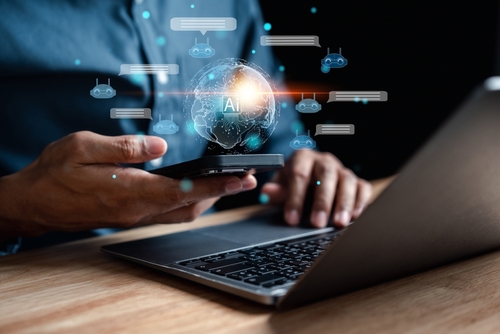We usually think about automation and artificial intelligence having roles in performing low-skill, mundane tasks; the type of work that is tedious for humans to perform. In that context, the use of such tools may displace some human labor, but it also frees up (currently scarce) human labor to focus on higher-level and more rewarding tasks.
Chatbots With the Human Touch
When we think about the term “artificial intelligence,” it highlights what many of us subconsciously expect out of AI: it’s intelligent, but artificial.
It lacks the human touch.
But that gap may be closing, according to a new study by JAMA Network. In an article for CNN covering the study, Deidre McPhillips explains the setup: “A panel of licensed health care professionals assessed responses to about 200 different medical questions posed to a public online forum, including patient inquiries about medical diagnoses, need for medical attention and more.”
The results were quite interesting.
“More than a quarter of responses from physicians were considered to be less than acceptable in quality compared with less than 3% of those from ChatGPT,” McPhillis says. “Conversely, nearly half of responses from ChatGPT were considered to be empathetic (45%) compared with less than 5% of those from physicians. On average, ChatGPT scored 21% higher than physicians for the quality of responses and 41% more empathetic, according to the study.”
Greater Processing Capacity
One factor that may contribute to more empathetic responses from ChatGPT is bandwidth. Humans, even doctors, generally have less processing capacity than computers, meaning human performance may be inferior to AI performance on some tasks in part because humans don’t have the time to give it their all in performing each and every task.
“In one example provided in the study, a patient posed a question to a social media forum about the risk of going blind after a splash of bleach in the eye,” says McPhillips. “ChatGPT started its response by apologizing for the scare, followed by seven more sentences of advice and encouragement about the ‘unlikely’ result of going blind. Meanwhile, one physician responded with ‘sounds like you will be fine,’ followed by the phone number for Poison Control. All clinicians evaluating these responses preferred ChatGPT’s response.”
Providing medical care and advice to humans is very high stakes, so don’t expect to see AI replace human doctors in the immediate future. But the increasing sophistication of such tools creates some interesting prospects for the future of work.
Lin Grensing-Pophal is a Contributing Editor at HR Daily Advisor.

